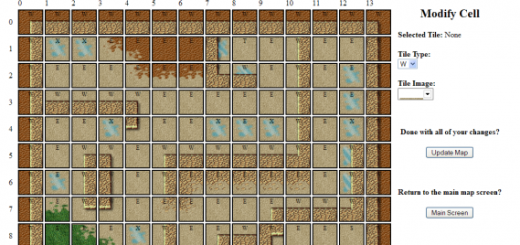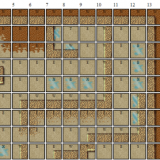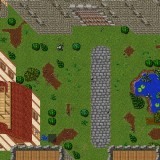Conceptual Reality
Although most of the games I’ve made are online text based games, they’ve taught me a lot of valuable knowledge. How do you make a game that keeps people addicted? Some developers spend years on a single game only to have their million dollar budgets blown when they can’t get it off the shelves and into people’s houses. Some places over-price their products, like the PS3 and the iphone whose prices have dropped dramatically from their initial 8 and 900 dollars.So the secret really is balance. If you make something too graphical, then sometimes the story line is lost in the process. If its too hard to level up, or learn a fighting system, or beat a boss, or even get the hang of camera usage or movement then you’ll find the game left in the dust after hours of hard work for something you thought was the next best thing to come to video games.
How do you balance something out? How do you make something fun thats easy enough to play and hard enough to work at without loosing player’s interest? How do you take advantage of your target audience, or how do you make your game appeal to a larger audience? In my most successful online game I did something that no other online horse games had tried before my game came around (and yes there are a lot of copycats now, and my biggest competitors have changed their games to reflect my strategy) – I made it realistic. This simple concept keeps my game challenging, yet interesting at the same time. The game reflects real challenges, hardships, and the REWARDS you would find in real life. Not only does this give my game a huge advantage over competitors, it appeals to people of all ages and genders. I’ve talked to 70 year old men and women, 6 year old boys and girls, and teen boys and girls of all ages. The online connectivity means that people from Australia who share a passion for horses can talk to someone from the United Kingdom and Asia and South America. I get hits from places all over the world from people of all ages and genders because I took one single concept and put it into action.
Did I think about my target audience? Of course I did! I try to use colors and pictures and wording that is easy for children and teens to understand. But at the same time there are several different levels of complexity within the game. Younger children grow ecstatic when they buy their own virtual horse and learn how to feed it and care for it and breed it. Then they scream and shout when they come online one day and there is a little baby foal waiting for them. Teenagers show and race their horses like they would in real world. They learn how to barter and sell, and train their horses to beat out the top competition. Adults and older teens learn the real mechanics of the game as they figure out how EVERYTHING they do in the game effects their horse’s performance and potential. Using this model kids are drawn back to the game again and again as they learn first the mechanics of play when they are younger, the competition as they grow older, and finally the challenge of figuring out how everything is connected. This game follows them from one stage of life to the other and it shows no signs of stopping anytime soon.
What about profit?! It seems like in today’s society everyone is worried about making a profit. If you put millions of dollars into a game you want to see the return – twofold. I think we’re forgetting something simple. If you can make a game that is fun, and enjoyable, and addicting, the profit is already there. Focusing on the profit of the game seems to take away from what we really should be looking at. Can we play this? Do we want to play it again? Is it too challenging, too easy, does it take so long to reach the next level that we loose interest? Is this FUN? Really, that is one of the biggest things game developers should be asking. If the game isn’t fun to play, then who is going to want to play it? If video games are like doing math homework – repetitive and boring – there’s no point playing the game when we really should be doing our math homework.
So where does this leave us? Video games are becoming repetitive and predictable. Yes, we all still run out to the store to get the newest Final Fantasy or Resident Evil, and so forth and so on. But we’re getting tired of having the same thing again and again. We need to take chances, stop focusing on the profit, and we’ll find the new game that steps outside of the box can take us much farther then video game remakes ever have.













